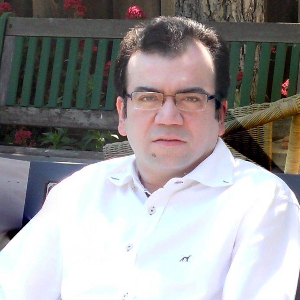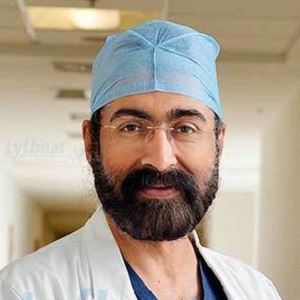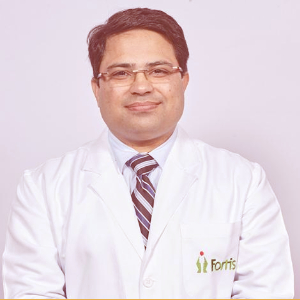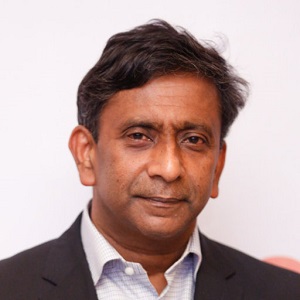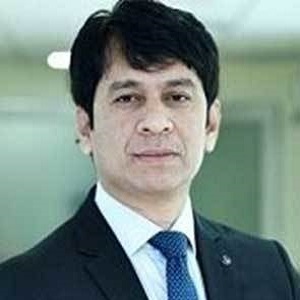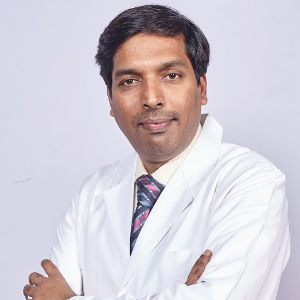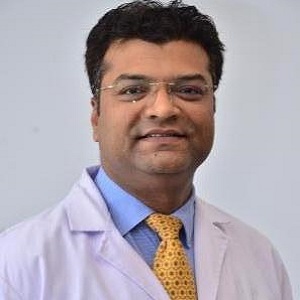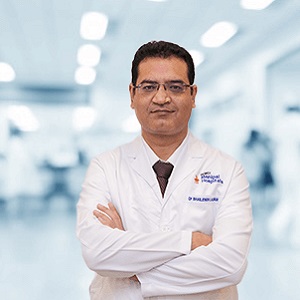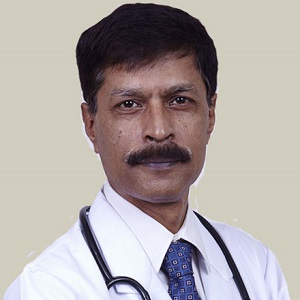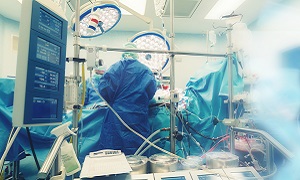Best Doctors in India for Pancreas Transplant
- Liver Transplant Surgeon and HPB Surgeon, New Delhi, India
- Over 33 years’ experience
Profile Highlights:
- Dr. Subhash Gupta is one of the finest Gastrointestinal and Liver Transplant Surgeons in the country. He has garnered an outstanding reputation in the field of Biliary, pancreas, and liver transplantation.
- He has conducted over 300 Living Donor Liver Transplants in the year 2013 each lasting 10-16 hours long.
- Dr. Subhash Gupta is also known to pioneer the development of Living Donor Transplant or LDLT.
- Liver Transplant Surgeon, Gurugram, India
- Over 21 years’ experience
Profile Highlights:
- Known to be a pioneer in the field of liver transplantation, Dr. Arvinder Singh Soin leads one of the world’s most successful liver transplant programs at Medanta. Currently, he is the Chairman of the Institute of Liver Transplantation and Regenerative Medicine, at Medanata- The Medicity, Gurgaon, India.
- Quite renowned for having a 95 percent success rate, and having performed over 2500 liver transplants throughout his career, Dr. Arvinder Singh Soin was awarded the Padma Shri by the President of India, for his contributions to the field of Medicine.
- Liver Transplant & HPB Surgeon, Gurugram, India
- Over 17 years’ experience
Profile Highlights:
- Dr. Vivek Vij is considered one of the most reputed liver transplant surgeons who has over 17 years of proficient experience and has performed multiple exemplary medical procedures involving advanced surgical skills that cover the entire gamut of gastroenterological surgeries.
- Dr. Vivek Vij’s expertise lies in Adult & Paediatric Liver Transplant, Complex Liver Surgery, Advanced Pancreato-biliary Surgeries, Advanced Laparoscopic and Robotic Surgeries, Basic Science Research, and Regenerative Medicine. His outstanding expertise in liver transplant procedures has earned him many accolades and prestige.
- Liver Transplant Surgeon and HPB Surgeon, Chennai, India
- Over 30 years’ experience
Profile Highlights:
- Dr. (Prof.) Mohamed Rela is known as one of the best liver transplant surgeons in the world. His name has also entered the Guinness Book of Records for performing liver transplantation of a 5-day-old baby.
- With more than 30 years of experience, Dr. Rela is known as a pioneer in liver transplantation & hepatopancreatobiliary (HPB) surgery.
- Dr. Mohamed Rela is the Chairman and Director of Dr. Rela Institute and Medical Centre, Chennai, India; and the Professor of Liver Surgery and Transplantation, at King’s College, Hospital in London as well.
- During his career of almost 30 years, Dr. Rela has performed over 4500 liver transplantations worldwide.
- Liver Transplant Surgeon & HPB Surgeon, Gurugram, India
- Over 15 years’ experience
Profile Highlights:
- Dr. Giriraj Singh Bora is a liver transplant surgeon, who is known for being the founder member of the Liver Transplant Society of India.
- He is the first doctor to transplant a liver in Rajasthan. He is also known for carrying out the first deceased donor and the first living donor liver transplants in Rajasthan and has also been instrumental in starting a liver transplant program in the region.
- Liver Transplant & HPB Surgeon, Gurugram, India
- Over 20 years’ experience
Profile Highlights:
- Dr. Ajitabh Srivastava is a reputed HPB and Liver Transplant surgeon in India.
- He has been a key member of teams that performed over 1500 liver transplants including living donors, deceased donors, pediatric transplants, and combined liver and kidney transplants.
- He is an expert in other complex procedures involving hepatobiliary surgery, combined liver, and Kidney Transplant, and vascular access surgery.
- Surgical Gastroenterologist, Liver Transplant Surgeon, New Delhi, India
- Over 18 years experience
Profile Highlights:
- Dr. Neerav Goyal is one of the best Liver transplant surgeons in India. He is the Head of the Apollo Liver Transplant, Hepatobiliary, and Pancreatic Surgery unit in New Delhi.
- Dr. Neerav Goyal is providing the best care to patients with Hepatectomy/ liver transplant in case of liver cancer or liver cirrhosis, surgeries for pancreatic cancer, etc.
- He is a Gold Medalist practitioner who performs complex surgeries with success.
- Dr. Goyal has performed over 2100 liver transplants in his 18 years of experience. This also includes 500+ cadaver liver transplants and 220 pediatric liver transplants.
- Liver Transplant Surgeon & HPB Surgeon, New Delhi, India
- Over 20 years’ experience
Profile Highlights:
- Dr. Bhushan Bhole is a well-known Liver Transplant Surgeon & HPB Surgeon who has done Advanced Fellowship in Liver Transplantation & Fellowship in Advanced Laparoscopic Surgery, in Birmingham, UK.
- He is an active member of several national surgical associations such as ASI, IASG, IHPBA, ACRSI, MAS, IAGES, IHA & IMA. He has also been awarded many fellowships like FACRSI, IAGES & FMAS.
- Liver Transplant Surgeon & HPB Surgeon, New Delhi, India
- Over 19 years’ experience
Profile Highlights:
- Dr. Shailendra Lalwani is a renowned gastroenterologist at Manipal Hospitals, Dwarka, New Delhi, who has over 19 years of experience as a specialist. His expertise lies in Liver Transplantation and Hepato-pancreatic biliary surgery.
- For his outstanding contributions to the field of gastroenterology, Dr. Shailendra Lalwani has been honored with several awards and recognition. He is also an active member of the Delhi Medical Council.
- Liver Transplant Surgeon and HPB Surgeon, New Delhi, India
- Over 20 years’ experience
Profile Highlights:
- With over 20 years of experience in performing complex operations for cancer, and other diseases involving the pancreas, liver, and gall bladder, Dr. Anupam Saha has been the foremost gastro intestinal and Hepato-Pancreato-biliary surgeon of the Indian Armed Forces.
- He did a 1-year fellowship in Liver Transplantation as well, at King’s College Hospital, London.
- For his service, Dr. Anupam Saha has also been awarded the Vishist Sewa Medal by the Armed Forces.
Best Hospitals in India for Pancreas Transplant
Indraprastha Apollo Hospital, New Delhi
- City: New Delhi, India
Hospital Highlights:
- Indraprastha Apollo Hospital is a 700-bedded multispecialty hospital in the heart of the capital of India. It is a part of Apollo Hospital group, one of India’s most reputed healthcare chains. Indraprastha Apollo Hospital has been accredited by Joint Commission International, making it the first internationally accredited hospital in the country in 2005.
- There are 52 specialties in the hospital with one of the best cardiology centers in the country. The hospital is also equipped with State of the art infrastructure facilities with the largest Sleep Lab in Asia and the largest number of ICU bed facilities in India.
- The hospital also has one of the largest dialysis units in India along with a dedicated Bone Marrow Transplant unit.
- The latest and highly advanced technologies that are installed in the hospital include Da Vinci Robotic Surgery System, PET-MR, PET-CT, Cobalt-based HDR Brachytherapy, Brain Lab Navigation System, Tilting MRI, Portable CT scanner, 3 Tesla MRI, 128 Slice CT scanner, DSA Lab, Endosonography, Hyperbaric Chamber and Fibro scan.
Fortis Memorial Research Institute, Gurugram
- City: Gurugram, India
Hospital Highlights:
- Fortis Memorial Research Institute is a multi-super-specialty, quaternary care hospital with 1000 beds. The hospital comprises reputed clinicians, and international faculty and is also equipped with cutting-edge technology. The hospital is a part of Fortis Healthcare Limited, a reputed chain of private hospitals in India.
- It is a NABH-accredited hospital that is spread across 11 acres of land and has a capacity of 1000 beds. The hospital has 55 specialties and is one of the premier health care centers in the Asia Pacific region popularly known as “the Mecca of Healthcare”.
- The hospital has 260 diagnostic centers and is also equipped with the latest and advanced techniques that include 3 Telsa which is the world’s first Digital MRI technology. The hospital also has world-class Radiation Therapy techniques which have been developed by leading technology experts from Elekta and Brain Lab.
Apollo Hospital, Chennai
- City: Chennai, India
Hospital Highlights:
- Apollo Hospitals, Chennai, is one of the best hospitals for heart care in India. Over the years, Apollo has expanded all over India, as a healthcare chain.
- India’s first ‘Only Pancreas’ transplant was performed in Apollo Hospital. The hospital is known for successfully performing Asia’s first en-bloc combined heart and liver transplant, and over the years, it has attained a remarkable achievement in the global healthcare space. Around 3-4 organ transplants are performed in the hospital per day.
- Equipped with over 500 beds, this hospital in Chennai was established in 1983 and since then has been among the most preferred hospital for patients from all over the world.
- The hospital holds accreditation of the NABH and JCI and is the first hospital in India to be ISO 9001 and ISO 14001 certified. It is also the first South Indian Hospital to receive subsequent reaccreditation from the JCI USA 4 times.
Medanta-The Medicity, Gurgaon
- City: Gurugram, India
Hospital Highlights:
- One of India’s best and largest multi-specialty hospitals, Medanta was built with the aim to bring India to the highest standards of medical care. The hospital has been providing the best medical services to its patients, since its inception, with care, commitment, and compassion.
- Equipped with 1250 beds, the hospital was founded by Dr. Naresh Trehan in the year 2009 with an aim to provide the best medical care at affordable costs. The hospital is spread across 43 acres and includes 45 operation theatres and 350 beds dedicated solely to ICU. The hospital includes over 800 doctors, and more than 22 specialty departments and has a dedicated floor for individual specialty in order to offer the best services under one roof.
- The hospital is considered one of the premier institutes in India for Cardiac Care and includes staffs and members of high caliber. The hospital has 6 distinct centers of excellence.
Max Super Specialty Hospital, New Delhi
- City: New Delhi, India
Hospital Highlights:
- One of the well-regarded providers in India committed to the highest standards of clinical excellence and patient care, Max Super Specialty Hospital is a part of Max Healthcare, which is the second-largest healthcare chain in India. Regarded as one of the most well-regarded healthcare providers in the country, Max Super Specialty Hospital is committed to the highest standards of clinical excellence as well as patient care. The hospital is also equipped with the latest technology as well as cutting-edge research. The hospital is known to deliver and ensure the highest level of patient care.
- The hospital has more than 500 beds and offers treatment for over 35 specialties. The hospital also holds the credit of having installed the first Brain Suite in Asia. This is a highly advanced Neurosurgical machine that allows MRI to be taken while surgery is ongoing.
- Other advanced and latest technologies are also installed in the hospital such as the 1.5 Tesla MRI machine, 64 Slice CT Angiography, 4D ECHO, LINAC, and 3.5T MRI machine.
Artemis Hospital, Gurugram
- City: Gurugram, India
Hospital Highlights:
- One of the most well-known hospitals in the Delhi NCR, Artemis Hospital is the first hospital in Gurugram to get accredited by the Joint Commission International.
- With more than 40 specialties, the hospital has been designed to be one of the most technically advanced hospitals in the country, with the best medical and surgical health care. The hospital has eleven special and dedicated centers, for Heart, Cancer, Neurosciences, etc.
- The latest technologies in the hospital include Endovascular Hybrid Operating Suite and Flat panel Cath Labs for the cardiovascular department, 3 Tesla MRI, 16 slice PET CT, 64 Slice Cardiac CT Scan, HDR Brachytherapy, and highly advanced Image Guided Radiation Therapy techniques (LINAC) are installed in the hospital.
- The hospital has won several awards as well, since its inception.
BLK Max Super Specialty Hospital, New Delhi
- City: New Delhi, India
Hospital Highlights:
- Equipped with 650 beds, BLK Superspecialty Hospital is the largest stand-alone private sector hospital in Delhi.
- With over 1500 healthcare providers and 150 globally renowned super specialists, the hospital is one of Asia’s largest Bone Marrow Transplant Centres. The hospital is known for having some of the best cancer doctors in the country.
- The hospital is NABH and NABL accredited and was inaugurated by the first Prime Minister of India. Pt. Jawahar Lal Nehru.
Gleneagles Global Hospitals, Chennai
- City: Chennai, India
Hospital Highlights:
- Established in 1999, Gleneagles Global Hospital, Chennai, is one of the top healthcare facilities in Southern India. It is part of the Gleneagles Hospital Chain, which is the fourth largest healthcare chain in the country. The hospital specializes in multi-organ transplants of kidneys, liver, lungs, heart, etc.
- The hospital has an excellent infrastructure and state-of-the-art lab and equipment set-up. The hospital boasts cutting-edge technologies, a highly skilled team of doctors and surgeons, and trained support staff. Located in Perumbakam, Chennai, it is one of India’s premier health care destinations. The hospital has performed some of the most complex surgical and clinical procedures in India including multi-organ transplantations.
- The hospital’s lung transplantation program is one of the best in the country. The hospital is known for having performed India’s first single lung transplant and first minimal invasive lung transplant. It is also the only Indian hospital to be associated with King’s College Hospital, London, United Kingdom for liver transplantations.
Fortis Hospital, Mulund, Mumbai
- City: Mumbai, India
Hospital Highlights:
- Fortis Hospital in Mulund is a 315-bed multi-speciality tertiary care hospital with five JCI accreditations that offers a wide variety of diagnostic and therapeutic services. The Fortis Hospital in Mulund delivers patient-centred treatment with cutting-edge technology, highly skilled and experienced surgeons, and paramedical staff.
- This institution houses Maharashtra’s largest multi-organ transplant centre. It is also the first heart transplant centre in western India to conduct 100 or more consecutive heart transplants in under four years. It is the only hospital in the city to have multi-organ transplants and has handled the youngest patient for angioplasty. Fortis Hospital Mulund now boasts the first advanced surgical robot in central Mumbai.
- Cardiology and heart surgery, urology, nephrology, neurosciences, orthopaedics, digestive care, emergency and critical care, and maternity care are among the services provided by the hospital.
Kokilaben Dhirubhai Ambani Hospital, Mumbai
- City: Mumbai, India
Hospital Highlights:
- Kokilaben Dhirubhai Ambani Hospital, Named after the wife of Indian industrialist Dhirubhai Ambani, the founder of Reliance Industries, this is one of the top hospitals in Mumbai. This 750-bed multi-specialty hospital became operational in 2009. Known as one of India’s most advanced tertiary care facilities, the hospital is designed to raise India’s global standing as a healthcare hub, with an emphasis on excellence in clinical services.
- Kokilaben Dhirubhai Ambani Hospital uses Protocol and Care Pathway based treatment models to ensure the best outcomes for patients.
- The hospital represents a confluence of top-notch talent, cutting-edge technology, state-of-the-art infrastructure, and, most importantly commitment.
- The hospital also holds the accreditation of the NABH, NABL, CAP, and JCI.
- The hospital has been recognized as the No. 1 Multispecialty Hospital in Mumbai and the West Zone for the fifth year in a row in 2020 by The Week.
Pancreas Transplant
Pancreas transplant is a surgical procedure where a healthy pancreas is placed from a donor into a person whose pancreas no longer work properly. A pancreas transplant is often performed as a last resort and it has become a key treatment for people suffering from type 1 diabetes. This procedure is also sometimes carried out for people who need insulin therapy and suffer from type 2 diabetes, though this is less common.
The transplant is performed with the aim to restore normal blood glucose levels to your body. The transplanted pancreas can produce insulin for managing blood glucose levels.
This procedure is generally performed for people who are suffering from diabetes. It is generally not used to treat people with other conditions, though it is rarely used to treat certain types of cancer.
Process
A pancreas transplant can help in restoring normal insulin production and improving blood sugar control in people suffering from diabetes. However, it is not considered a standard treatment. In some cases, the side effects of anti-rejection medications can be serious.
Doctors can consider this procedure if their patients suffer from the following conditions:
- Type 1 diabetes that is not controllable with standard treatment
- Consistently poor blood sugar control
- Severe kidney damage
- Frequent insulin reactions
- Type 2 diabetes associated with low insulin resistance as well as low insulin production
Types
A pancreas transplant can be of multiple types:
Pancreas transplant alone- People suffering from diabetes and having early or no kidney disease are generally considered candidates for a pancreas transplant alone. A pancreas transplant surgery involves the placement of a healthy pancreas into a recipient whose pancreas is not functioning properly anymore.
Combined kidney-pancreas transplant- Surgeons are able to perform combined kidney-pancreas transplants for people having diabetes who are also having or are at risk of kidney failure. In such cases, the pancreas transplants are done at the same time as the kidney transplants.
This method can give you a healthy kidney and pancreas, which will most likely not contribute to diabetes-related kidney damage in the future.
Pancreas-after-kidney transplant– For people who are facing a long wait for a donor kidney and a donor pancreas to become available, a kidney transplant might be recommended at first if a living or deceased-donor kidney is available.
After the patient recovers from the kidney transplant surgery, they can later receive a pancreas transplant once a donor pancreas is available.
Pancreatic islet cell transplant- During this method, insulin-producing cells, i.e. islet cells that are taken from a deceased donor’s pancreas, will be injected into a vein that will be taking the blood to your liver. Generally, more than one injection of transplanted islet cells might be required.
Preparation
First, you will receive a medical evaluation at a transplant center before you undergo any kind of organ transplant. This will involve multiple tests, for determining your overall health, which includes a physical exam. Your medical history will be reviewed by a healthcare professional at the transplant center.
Before you undergo a pancreas transplant, there might be specific tests, which include:
- blood tests, such as an HIV test
- kidney function tests
- neuropsychological exams
- a chest X-ray
- studies for checking your heart function, such as an electrocardiogram or an echocardiogram
The evaluation process generally takes a month or two. It is done so that the doctor and healthcare team is able to determine whether you are a suitable candidate for the surgery and whether you will be able to handle the drug regiment which is required post-surgery.
Once it is determined, that you are a suitable candidate, then your name will be placed on the waiting list of the transplant center.
You will need to remember that different transplant centers are likely to have different kinds of preoperative protocols. These will vary further depending on the type of donor as well as the overall health of the recipient.
Procedure
The procedure is performed using general anesthesia and therefore you are unconscious throughout the procedure. The anesthetist can give you medication such as gas for breathing through a mask or may inject a liquid medication directly into one of your veins.
Once you are unconscious, your surgeon will first make an incision down the center of the abdomen. The surgeon will then place the new pancreas, as well as a small portion of the donor’s small intestine into your lower abdomen.
Next, the donor’s intestine is attached either to your small intestine or your bladder and the donor pancreas is then connected to blood vessels that supply blood to your legs. After this, your own pancreas is left in place for aiding digestion.
If you are undergoing a kidney transplant as well, then the blood vessels of the new kidney are attached to blood vessels in your abdomen’s lower part.
The new kidney’s ureter, which is the tube linking the kidney to the bladder, will next be connected to your bladder. Your kidneys are left in place unless they are causing any complications such as high blood pressure or infection.
Throughout the procedure, your blood pressure and blood oxygen will be monitored by the surgical team. The surgery can take around three to six hours. It will depend on whether you are having a pancreas transplant alone or a kidney transplant combined with a pancreas transplant.
After the procedure
Once the transplant surgery is complete, recipients are generally required to stay in the ICU for a few days so that he/she can be monitored for any complications. After this, he/she can move to a transplant recovery unit within the hospital.
Since a pancreas transplant involves various medications, a recipient’s drug therapy can require extensive monitoring, since they will need to take these drugs every day to prevent rejection of the new organ.
After a successful transplant, the new pancreas will be making the insulin required by your body and therefore you will not need insulin therapy to treat type 1 diabetes. However, even with the best possible match between the donor and you, your immune system will be trying to reject your new pancreas. This is why you will need anti-rejection medication so that your immune system can be suppressed. It is likely that these drugs can be required for the rest of your life. Medications that suppress the immune system generally makes your body more vulnerable to infection, and this is why your doctor might also prescribe antibacterial and antifungal medications.
Certain signs and symptoms can indicate your body rejecting your new pancreas:
- Belly pain
- Increased blood sugar levels
- Fever
- Excessive tenderness at the transplant site
- Decreased urination
- Vomiting
You will need to notify your transplant team immediately if you notice any of these symptoms.
Risks
Like any organ transplant, there is the possibility of a rejection of the new organ. It carries the risk of failure of the pancreas as well. Thanks to advancements in surgical and immunosuppressant medication therapy, the risk in this procedure have become low. In rare cases, there is also a risk of death.
The procedure itself carries several risks, such as bleeding, blood clots, as well as an infection. There is also a risk of hyperglycemia, which can occur during and right after the transplant.
The drugs which you will receive after the transplant can also lead to serious side effects. Some of these side effects include:
- high cholesterol
- thinning of the bones
- high blood pressure
- Hyperglycemia
- weight gain
- hair loss or excessive hair growth

